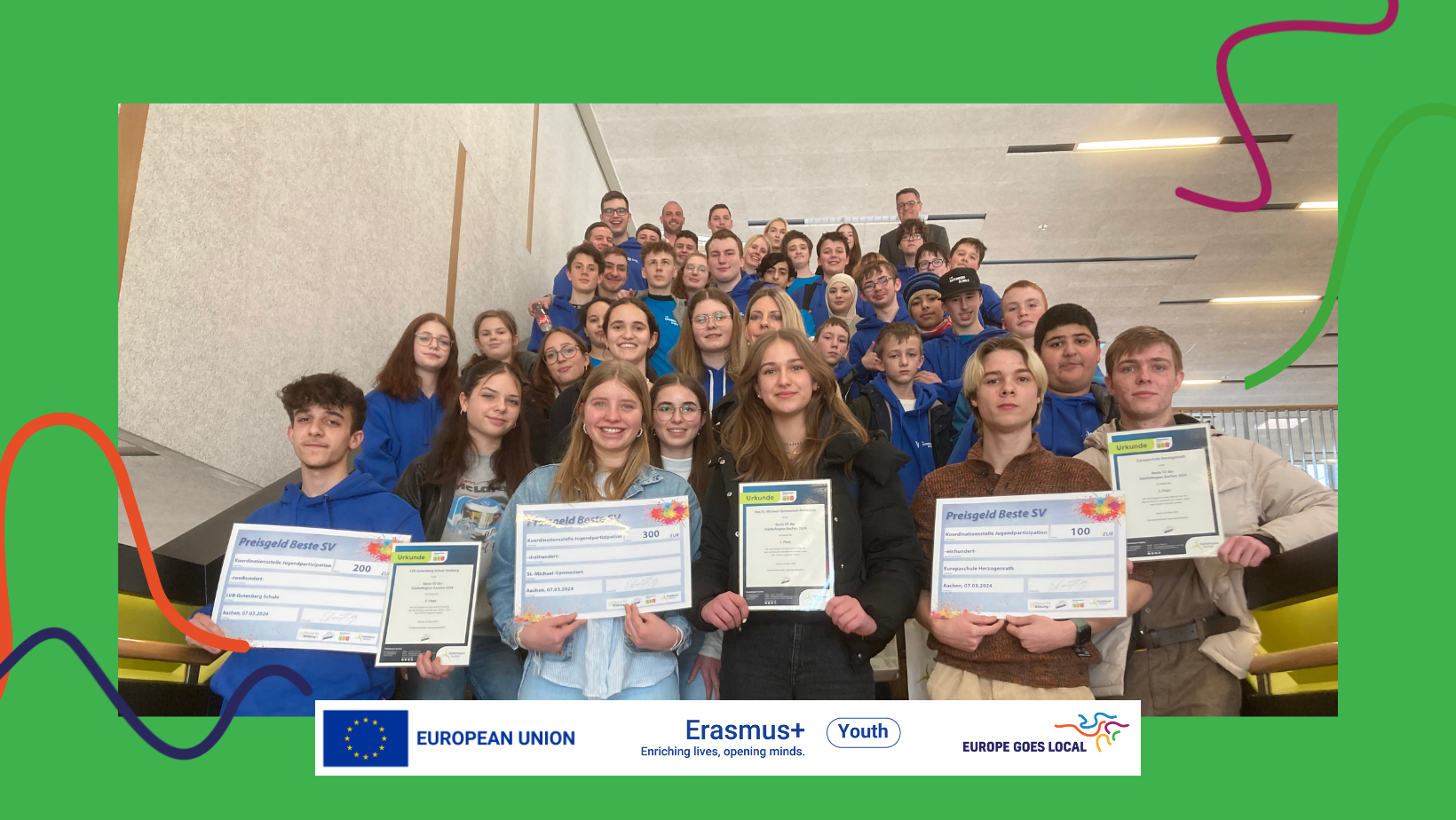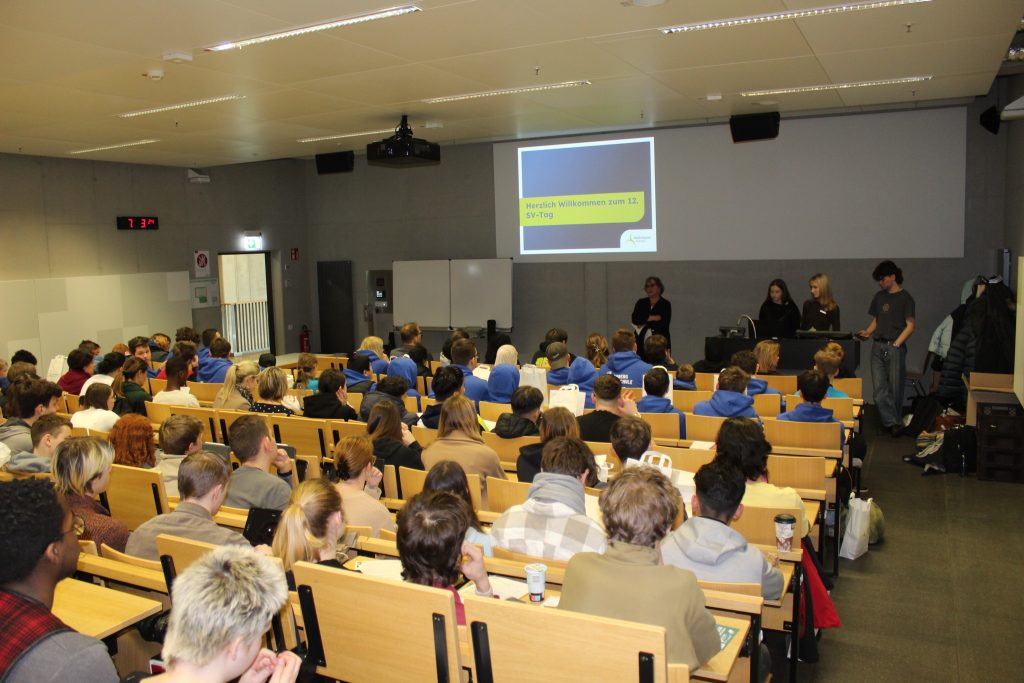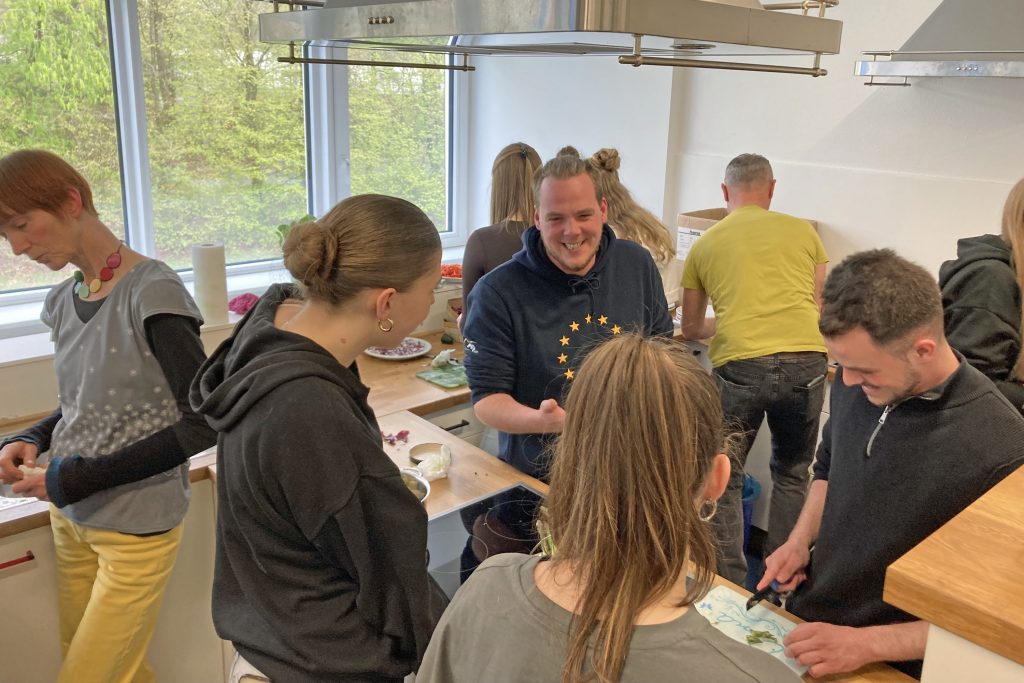
We enjoyed interviewing Barbara van Rey and Dörthe Hofman, from the Youth Participation Coordination office in the city region of Aachen in Germany. Barbara and Dörthe told us more about the office’s core activities, and its good practice – Das Geht! Youth and politics in dialogue. The office has developed projects to continuously support youth participation and engagement and raise awareness in youth on how they can become active citizens.
What are the main activities of the Youth Participation Coordination Office of the city region of Aachen, Germany? What issues and challenges in the local youth work is the office solving?
The coordination office serves as the interface between decision-makers, politicians, administrations, and young people. The main target group consists of teenagers from 12 years old up to young adults (25 years old). Through various actions, projects, and an established structure of participation opportunities for young people in the StädteRegion Aachen (city region of Aachen), the coordination office for youth participation has been able to consolidate valuable experiences in recent years and motivate many young people to engage in discourse at various political levels. The coordination office was established in 2011 following an initiative application by two young people. Since then, young volunteers („Freiwilliges Soziales Jahr“) at the coordination office for youth participation have been developing projects for other young people. In recent years, many interactive and empowering information and discussion events on various socially relevant topics and political elections have been offered. Additionally, the institutional establishment and legitimization of young people’s participation in political decision-making processes have been continuously strengthened and solidified.
How is the project “Das geht! – Youth and Politics in Dialogue ” developing youth participation?
The Coordination Office for Youth Participation of the city region of Aachen has made it its mission to serve as an information and participation center for young people, students, politicians, and educational actors. It provides information about upcoming projects in the field of political education, and regional society, and encourages participation in socially relevant projects. Here, young people can contribute to the preparation, implementation, and follow-up of projects, thus making them as target group-oriented as possible. Adolescents should have the opportunity to engage in political events outside the school context. During the project-related activities of the Coordination Office for Youth Participation, young people and politicians are meant to meet on an equal footing. The aim is to take the ideas and attitudes of young people seriously and allow them to experience self-efficacy. Young people should not only be encouraged in their social and political understanding but also in their personal development through their participation, involvement, and the chance to actively change existing structures in society. In addition to the existing goals, informal learning achievements are enabled for young people. In line with the EU Youth Strategy, the work of the Coordination Office improves the situation of young people and their involvement in social an political dialogue and decision-making processes. Das Geht! aims to provide all young people with more opportunities and equal chances in education and employment, regardless of social, cultural, or economic differences. The work partially builds on established participation formats and develops them according to the target groups’ needs. The three core areas of information, motivation, and participation form the foundation of the objectives. This sets the framework for the structural and systematic development of the project „Das geht!“ (“That’s Possible!“).

What are the main challenges in the process of motivating youth to be part of the political life of the city/community?
In motivating youth to participate in the political life of their city or community, several challenges must be addressed. Many young people perceive politics as distant from or irrelevant to their daily lives, leading to a lack of understanding about how their involvement can directly impact issues that matter to them. Additionally, there’s often a lack of awareness about the political process itself and the available opportunities for engagement, including registering to vote, attending public meetings, or joining political organizations. Negative perceptions of politicians and the political process can breed cynicism and distrust among young people, hindering their willingness to participate. Moreover, time constraints due to balancing school, work, and other commitments can pose significant barriers to youth involvement. Additionally, socio-economic and systemic barriers, such as limited access to transportation or discriminatory policies, can further impede the participation of marginalized youth. Overcoming these challenges requires targeted efforts to make politics more accessible, relevant, and engaging for young people. Initiatives such as youth-friendly outreach campaigns, educational programs on civic participation, and creating inclusive spaces for political dialogue are crucial steps in empowering youth voices in the political sphere.

In your opinion, what are the results/impact of the project so far?
All actions planned, carried out, and evaluated within the project „Das geht! Dialog zwischen Jugend & Politik“ (“That’s Possible! Dialogue between Youth and Politics”) target politically and democratically motivated and interested young citizens. In particular, first-time voters and young people were able to access general information about the upcoming European Parliament elections in 2024 to engage with the election and establish a foundation for lifelong active participation in elections.
And what are the areas in which young people can further develop through this project?
Young people can further develop their understanding of democracy and conscientiously engage with the topics and corresponding party positions. In dialogue formats with the respective candidates and politicians, young people can express their questions, ideas, and wishes. Throughout our project, the decision-makers can engage with the questions and opinions of the youth. This way, young people can actively take responsibility for their environment and the decisions that affect them.
Young people will also be offered a chance to engage with societal and political structures to then, as a result, be able to conscientiously formulate their own opinions and attitudes towards the areas of life that concern them.
The project’s overarching goal is to motivate young people to engage with politics. Their sense of important political decisions affecting them should be heightened. Especially due to the effects of the COVID-19 pandemic, efforts should be made to counteract inequalities in accessing and processing information, as well as participating in events that include dialogue. Furthermore, the political responsibility of every eligible young person, especially first-time voters, should be demonstrated through the democratic election and motivated to participate conscientiously in the election.
What are some key activities coming up for the Das Geht! project this year?
In the coming months, we plan to organize various events and activities in preparation for the upcoming EU elections in 2024, aimed at fostering interest and participation among students. One of our main events will be a creative workshop where students can craft creative projects with candidates representing key themes of the EU elections. This interactive event aims not only to strengthen understanding of the importance of the elections but also to provide students with an enjoyable opportunity to engage with political processes. Additionally, we will arrange educational activities related to the EU and its institutions, separate from the election itself. These activities will include informative sessions and discussions to deepen students’ understanding of European politics and institutions. Furthermore, we will organize joint events with various youth organizations to allow students to interact with other young people and gain exposure to different perspectives. These events may include discussions, workshops, or other activities to raise awareness of the EU elections and encourage students to actively participate in democratic processes.
Overall, we are confident that these planned initiatives will help increase student interest and participation in the EU elections and encourage them to actively engage in shaping the future of Europe.
Read more: